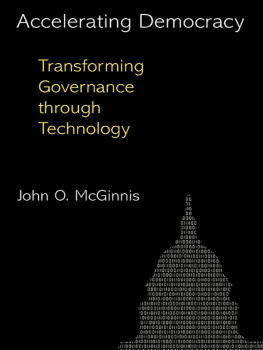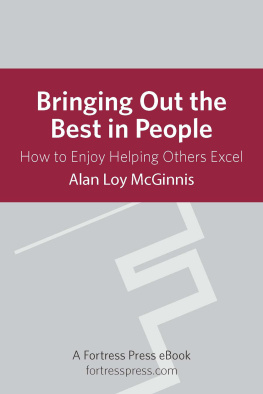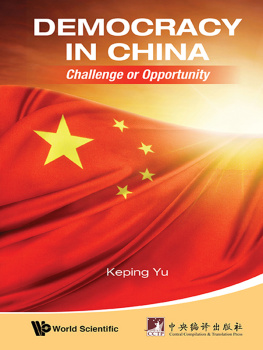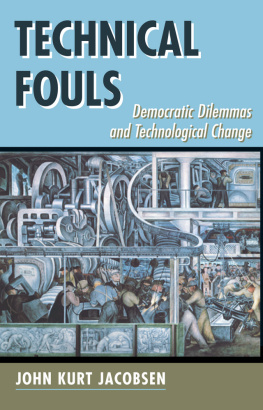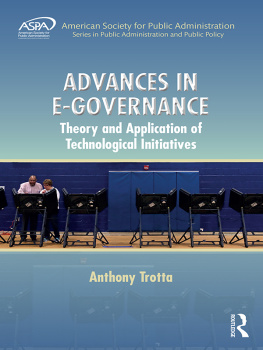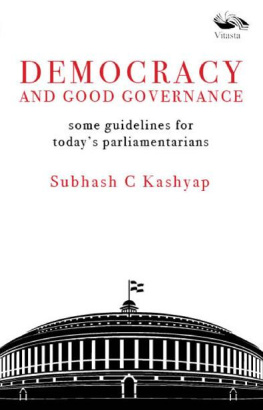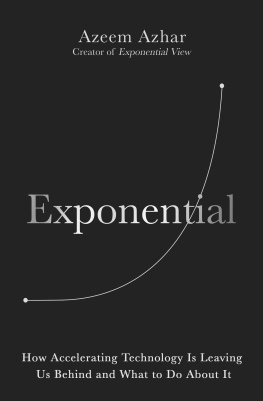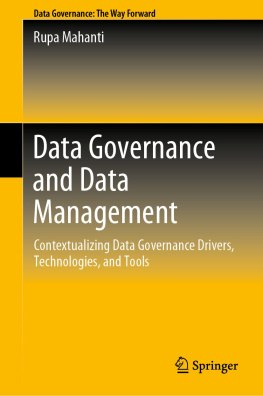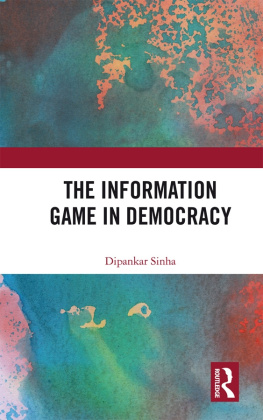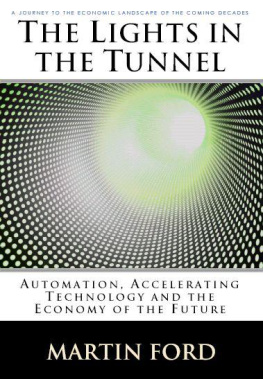Acknowledgments
THIS BOOK HAS ARGUED THAT politics can be improved by using information technology to prompt more minds to evaluate the consequences of policy. The book itself has been improved by the many minds that have probed and refined its arguments.
The Searle Center of Northwestern University convened a roundtable in September 2011 to discuss an earlier draft of the book. Participants were Robert Bennett, Tonja Jacobi, Andrew Koppelman, Jim Lindgren, Jide Nzelibe, Max Schanzenbach, and Jim Pfander, all of Northwestern Law School; Jamie Druckman of the Political Science Department at Northwestern University; Brian Fitzpatrick of Vanderbilt Law School; James Grimmelman of New York Law School; Robin Hanson of the Economics Department of George Mason University; Nelson Lund of George Mason Law School; Michael Rappaport of San Diego Law School; Brad Smith of Capital Law School; and Berin Szoka of TechFreedom. I owe them all a debt for vigorous debate over the ideas offered here.
I am also grateful to five friendsAndrew Clark, Steve Lubet, Mark Movsesian, John Pfaff, and Walter Stahrwho read portions of the manuscript and provided me with invaluable feedback. Conversations with Stephen Altschul, Sonia Arrison, Steve Calabresi, Ryan Calo, Seth Chandler, John Duffy, Neal Devins, Dan Hunter, Gary Marchant, Gillian Metzger, Paul Schwartz, Larry Solum, and Ilya Somin invigorated the project. I profited from presentations of my ideas at the Law, Science, and Innovation Center at Arizona State University; the University of Houston Law School; the Marquette Law School; the Singularity University; Stanford Law School; and the William and Mary Law School. Some years ago Michael Abramowicz taught a course with me on law and accelerating technologyappropriately by video linkand I learned a great deal from our exchanges. His book, Predictocracy: Market Mechanisms for Public and Private Decision Making, along with Ray Kurzweils The Singularity Is Near: When Humans Transcend Biology, provided an important catalyst for the ideas developed here.
Essays related to this work have been published as Age of Empirical, Policy Review 137(2006): 61; Laws for Learning in an Age of Acceleration, William and Mary Law Review 53 (2011): 305; A Politics of Knowledge, National Affairs (Winter 2012); and Accelerating Regulatory Review, in The Nanotechnology Challenge: Creating Legal Institutions for Uncertain Risks (Cambridge University Press, 2012). I am grateful to the editors for their suggestions, particularly Yuval Levin of National Affairs.
This book would never have been written but for Chuck Myers of Princeton University Press. Four years ago he came by my office to talk about possible book ideas and encouraged me to pursue this one. Without his intervention, I might have remained content to write articles. He has since provided a sympathetic sounding board for a neophyte book author. And without the introduction of Lee Epstein, a source of encouragement for the enterprise, I would never have met Chuck. My thanks also to Ann Adelman and Jill R. Hughes, excellent and sympathetic copyeditors. And I have been fortunate in hard working research assistants: Jonathan Bringewatt, Noah Brozinsky, Claire Hoffman, Branden Stein, Joshua Steinman, and Matthew Underwood.
My greatest debts are to my parents and to my wife, Ardith Spence. From the very beginning my parents gave me the confidence to try out bold ideas without fear of failure. Ardiths thoughtful suggestions given with loving support have resulted in numerous improvements to the book. In preparing a book about how we need to adapt to world that is rapidly transforming, their essential contributions reminded me of the unchanging value of enduring virtues.
Appendix
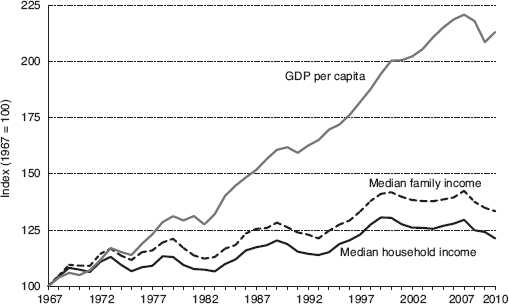
Figure 1. United States income growth, 19672010. Authors calculations based on data from U.S. Census (median family income and median household income in CPI-U-RS adjusted 2010 dollars) and U.S. Department of Commerce Bureau of Economic Analysis (GDP per capita in 2005 chained dollars). Adapted from Measuring Economic Well-Being: GDP vs. Median Income by Anthony Calabrese (http://www.stateoftheusa.org/content/measuring-economic-well-being.php).
CHAPTER ONE
The Ever Expanding Domain of Computation
THE COMPUTER IS NOW the fundamental machine of our age. Continuing exponential increases in computing power both propel the potentially cascading benefits and catastrophic threats that demand better governance and create the tools for better governance. The computer is the force behind most material technological advances as more and more fields from biotechnology to energy are brought within the domain of its digital power. Advances in these material technologies will generate many benefits but also may create new dangers such as novel kinds of pollution and weapons.
The rapid rise of computers likely reflects technological acceleration, a process by which technological change has moved faster and faster over the course of human history. Thus, the growing power of computation will increase the pace of change, potentially generating social turbulence and instability.
Fortunately, computational advances are also driving advances in information technology, from the growth and deepening of the Internet, to the burgeoning power of empirical methods, to the increasing capability of artificial intelligence. The key to improving governance is to bring politics within the domain of such information technology. Only a politics that exploits the latest fruits of the computational revolution can manage the disruption that this revolution is bringing to the social world.
The Exponential Rise of Computers
Computational capacity is growing at an exponential pace. Moores law, named after Gordon Moore, one of the founders of Intel, is the observation that the number of transistors that can be fitted onto a computer chip doubles every eighteen months to two years.
The temporal communication aspect of computation, such as broadband capacity, has grown at 28 percent per year, doubling in approximately thirty-four months. The spatial capacity for storage has grown at 23 percent per year, with a doubling time of approximately forty months.
While Moores law is the best known perspective on the exponential growth of computing, Bells law may better capture its social effect. Bells law posits that computational increases of a hundredfold create new classes of computers approximately each decade. Each class of machines becomes dramatically smaller in size but with as much or greater functionality as the class it displaces. The new class then becomes a new nexus by which humans exploit computational power in everyday life. In the 1960s mainframes were a primary locus of computing. In the 1970s so-called minicomputers began their run, only to be succeeded in the 1980s by PCs. In the 1990s PCs were joined by laptops, and in the 2000s smartphones appeared. Networks of sensors operating together are just now beginning to collect data on such matters as traffic flows, and the ubiquitous computing of interconnected sensors will soon be upon us. By the 2020s, computers will be small enough to be routinely introduced as medical devices in the body, enabling closer interaction between humans and computational machines.
The declining cost of computation fundamentally alters its social role. Exponential growth in computational capacity is moving computation rapidly to what technology theorists call a stage 4 technology.
For years, the imminent death of Moores law has been foretold, but the relentless exponential progress of computation has continued nonetheless. Intelthe computer chipmaking company that has a substantial interest in accurately telling software makers what to expectprojects that Moores law will continue at least until 2029. Although exponential growth cannot go on forever, its end is not yet in sight.
Next page
